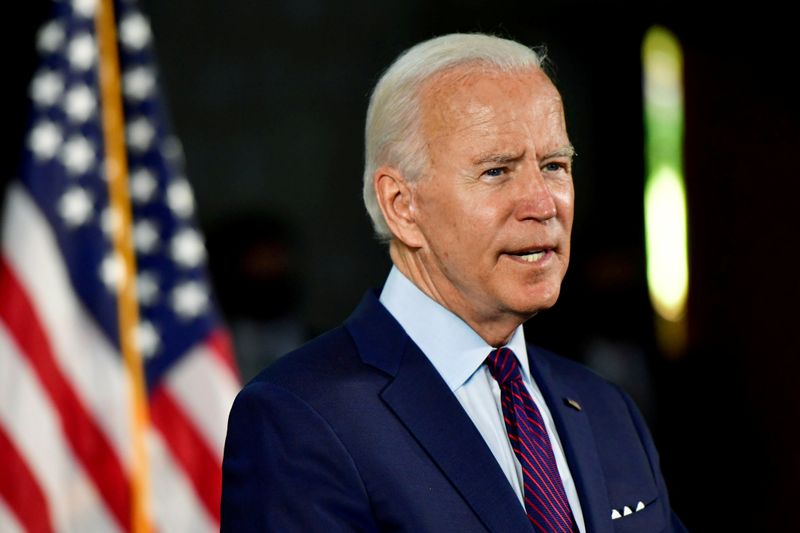By Valerie Volcovici, Joseph Ax and Trevor Hunnicutt
(Reuters) - Groups assembled by Democratic presidential candidate Joe Biden and former rival for the nomination Bernie Sanders proposed policies on Wednesday aimed at uniting the party, including putting the United States on a path to cut carbon emissions to zero by 2050.
Biden and Sanders, a liberal who was his last major primary opponent, formed the six groups in May to resolve friction between the party's progressives and centrists as they head into the Nov. 3 election against Republican President Donald Trump.
The group on climate brought together Democratic U.S. Representative and Sanders ally Alexandria Ocasio-Cortez as well as former Secretary of State John Kerry, who had supported Biden. The recommendations will inform the Democratic Party platform, a statement of goals the party will run on once they have been adopted at its August convention.
The documents propose several new policies that build on Biden's ideas. But they sidestep hot-button proposals on climate, criminal justice, the economy, education, healthcare and immigration that divided Democrats during their yearlong presidential primary season, leaving less room for Republicans to paint their opposition as extreme.
The proposals, for instance, make no mention of defunding the police, expanding government-run Medicare to all citizens, "Green New Deal" climate bills, legalizing marijuana or imposing bans on fracking long wanted by progressives that could kill jobs in important election battleground states.
"Obviously we're not walking out with Bernie's Green New Deal in hand, but we're a lot closer to an ambitious, far-reaching, justice-focused policy platform and vision than we were six weeks ago," said Varshini Prakash, a climate change task force member and the co-founder of the Sunrise Movement.
The net-zero climate target by 2050 is already a part of Biden's platform, and he was often criticized for not embracing a more aggressive target.
The latest recommendations do go further than Biden in some matters. The panel proposed setting targets to zero out carbon emissions in the power sector by 2035 and in the agriculture sector by 2030, as well as mandate that all new buildings leave a net-zero carbon footprint by 2030 - proposals initially embraced by Senator Elizabeth Warren and Washington Governor Jay Inslee, two other former presidential rivals.
In a statement, Sanders reaffirmed his commitment to helping Biden win in November and move the country "toward economic, racial, social and environmental justice."

"Though the end result is not what I or my supporters would have written alone, the task forces have created a good policy blueprint that will move this country in a much-needed progressive direction and substantially improve the lives of working families throughout our country," Sanders said.